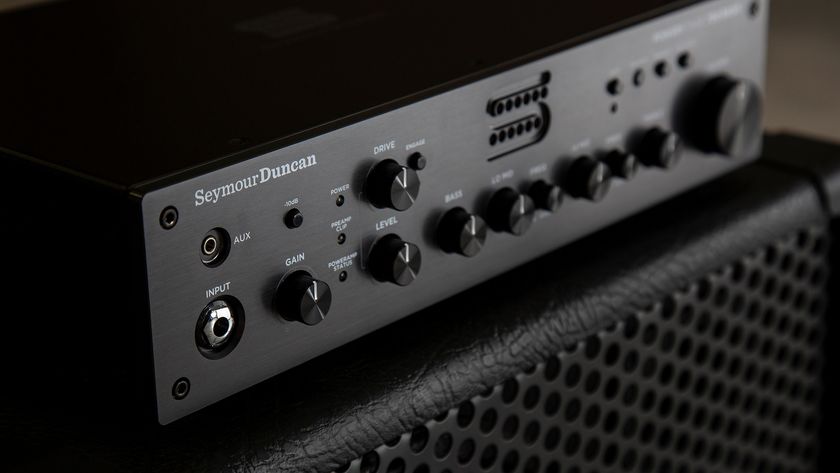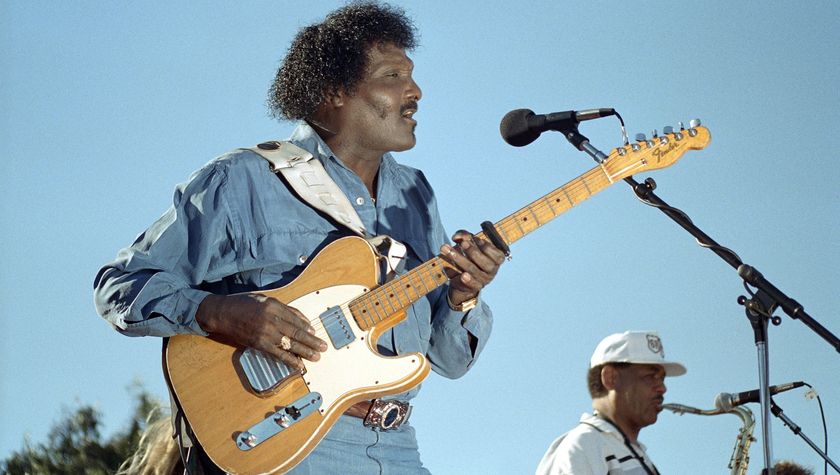Polish Club’s David Novak: “We’ve moved beyond the OG Polish Club setup”
On their loud and lively third album – the aptly titled Now We’re Cookin’ – the bonafide rock dogs in Polish Club take a big ol’ bite of the pop pie
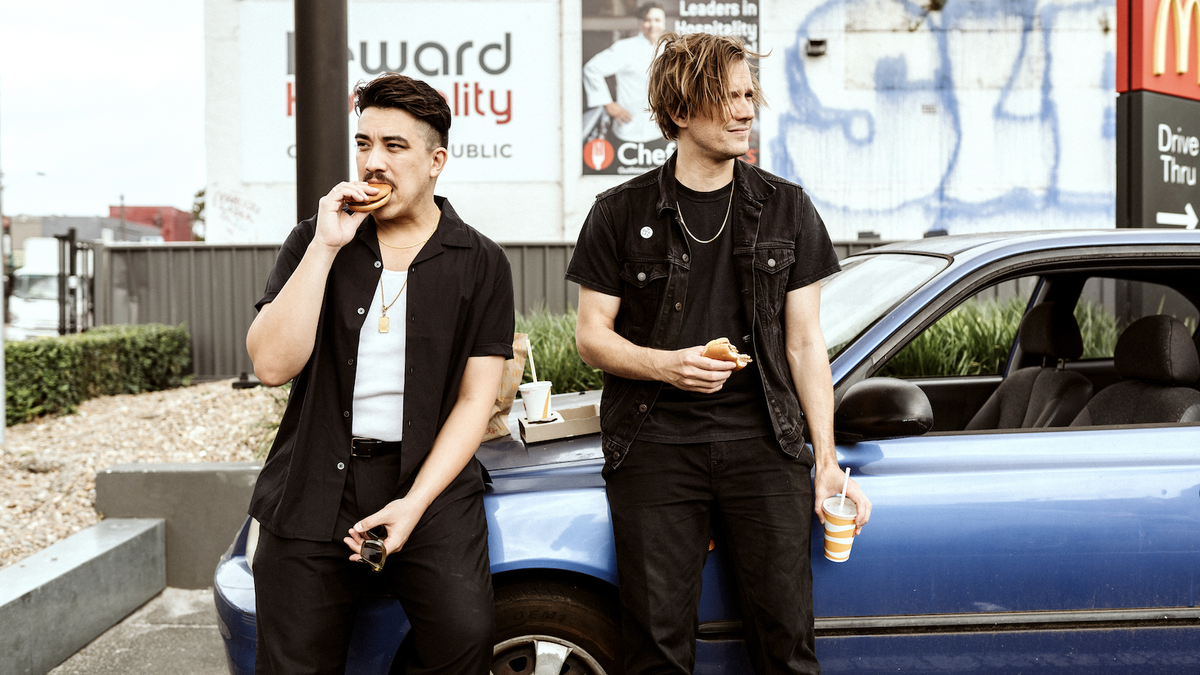
It was in 2016 that Australian Guitar first highlighted Polish Club, then riding the high of their debut EP and opening shows to crowds of around 100. They swung with a thick, groove-ridden rock ’n’ roll swagger lionising the greats of the ‘40s and ‘50s – albeit with a gruff, caffeinated edge of Australian pub-punk aplomb. When they rang the next year in with their debut album, Alright Already, they cracked the mainstream with little more than David Novak’s roaring baritone howls and passionate semi-hollow strumming, and the wall-rattling fills of drummer John-Henry Pajak.
2019’s Iguana retained the duo’s rock-centric bite with a slick dose of disco-flavoured sparkle and buoyant pop spirit, introducing a Polish Club less restricted by genre, but which still fit ardently in its wheelhouse of guitars, drums and pseudo-crooners. For better or worse, there was a method to Polish Club’s madness… Until now.
If Iguana was one step up from the sonic palate of Alright Already, then its sequel – the bold and ballsy, genre-bending Now We’re Cookin’ – is approximately three kilometres and a half-eaten cheeseburger down the line. No two tracks on the half-hour helping sound the same, from the gauzy and glittery “Stop For A Minute” to the jangly “Just Talking”, right to the summer-lovin’ “Getaway” and heart-wrenching “No Heaven”. As Novak tells us today, Polish Club have truly thrown caution to the wind with LP3 – there are no rules, no boundaries, and plenty of snacks.
With the stylistic jump you’ve taken on Now We’re Cookin’, how did your approach to the guitar change?
At the end of the day, all of them were still written with just the guitar and drums. And I think because we focus on melody first and foremost, and I don’t start singing until John’s playing the beat, it’s a lot easier to move around those elements. The guitar is always just supporting the melody when we write a song – there’s always chords that are going to fit underneath, it never really starts with a lead guitar part.
I think we’re focussed on hooks and melodies so much to the point where it almost needs more than just guitar to play live, to get away with it. Like, I wouldn’t necessarily think that we could get away with “Stop For A Minute” as a two-piece. So in a sense, we’ve kind of moved beyond that OG Polish Club setup.
Plus, working with Scott Horscroft, the co-producer – he would just automatically add all of this stuff, be it drum machines or synths or screams… There’s a couple of little Phil Spector moments where it’s just a wall of sound – there’s f***ing e-bows and all this crazy shit – and the guitar has very much just become one of those things, as opposed to the old way where it was like, “It’s a guitar and drum song, and we’re filling in the gaps.” It’s like, no, the guitar is part of the gaps now. But that being said, any song we write still has to work with just bass, guitar and drums.
Well I know you guys have started playing shows as a four-piece – do you feel more confident being able to stack more layers into the tracks because they’ll be fleshed out live with those extra members?
Yes and no – I mean, I don’t know that we would be able to tour as a four-piece forever, or for a massive album tour. So we do have to adjust and make sure that I can just play chords, or we could just have bass and I can still get by. I guess that’s why there’s not so many lead guitar parts – I mean there never really was, and I think that’s because we’re always thinking in the back of our minds, “Does this stand up live?” And I think the simplicity of these songs means that, yeah, they kind of always will – because I can just play chords. And I don’t mean that to denigrate the guitar or to say that it’s not important – but those parts are purposefully kind of malleable, y’know? They’re always just propping up the melody and filling in those gaps.
Get The Pick Newsletter
All the latest guitar news, interviews, lessons, reviews, deals and more, direct to your inbox!
It’s always been like that though, hasn’t it? In the case of Alright Already, those were all very driving, guitar-heavy tracks – but those guitar parts are certainly part of a much larger musical puzzle.
They are, but I think with those first two albums, it was very much a genre-focussed stylistic choice in what you would hear from the guitars. The first album was full of those really warm semi-hollow guitar parts throughout, and it was very much a concept in genre – not necessarily on purpose, either; I think just because that’s what we were most comfortable doing. That was our safe zone, and it was easy for us to write that stuff.
And then the second album got a bit more – for me, relatively – experimental with things like riffs, and doing more with a bigger pedalboard. And I feel like that was another distinct approach to the guitar. But for this one, we really made a choice to not be like, “Okay, well it’s this kind of genre” – especially with guitars.
There were 13 guitars in the studio when we went to track, and I used every single one. There was a Strat, a Tele, a Duesenberg Starplayer, a Jag, a f***ing Gretsch Duo Jet or whatever it’s called – and I used every single one, but for very specific purposes. And it didn’t feel like such a big deal to be switching between those things, because they were all just in support of a greater endgame – which was just, “Let’s make this song as catchy as possible.”
I don’t care what we have to put in, because nobody’s going to go, “This is a f***ing mess!” I feel like if I start singing and John starts playing the drums, people will be like, “Oh yeah, it sounds like that f***ing band.” It’s not like if Albert Hammond Jr. came onstage without a Strat. I haven’t established myself as a guitarist that… Well, I haven’t established myself as a guitarist at all, in my opinion, but like… It’s to support the band – the sound. I don’t find it particularly iconic or anything.
That’s a far cry from what you’d have said in 2016 when it came to the Epiphone Sheraton.
Totally, yeah, I was ready to die on that hill playing my Sheraton forever. I couldn’t even afford the Gibson version [laughs]. But y’know, there’s only so much you can do with it – especially in terms of songwriting.
I found that when you’re in the studio, sometimes it’s nice to have someone else like Scott, who’s like, “Why don’t you pick up that Strat and just strum those chords two octaves higher than you normally would.” Usually I would be like, “No, I f***ing hate Strats, I don’t want to do that.” Like, I am a rhythm guitarist, why would I be doing an overdub on a Strat? But again, that’s besides the point because you’re just filling that gap – it’s a different tone that I’m not precious about anymore.
There’s an e-bow on four of the songs, I think – at least four – and I was just like, “Ugh, an e-bow!?” In my mind, I’m thinking back to my high school band where our guitarist would just do all this wanky shit with an e-bow, and I’m like, “That’s so gross, we’re not a nu-metal band!” And then Scott’s like, “What the f*** are you taking about? David Bowie uses an e-bow on ‘Heroes’.” And I’d just be like, “Oh shit, really?” It was honestly really refreshing to be like, “Let’s just try it” – more often than not, you’ll find a place for it.

Ellie Robinson is an Australian writer, editor and dog enthusiast with a keen ear for pop-rock and a keen tongue for actual Pop Rocks. Her bylines include music rag staples like NME, BLUNT, Mixdown and, of course, Australian Guitar (where she also serves as Editor-at-Large), but also less expected fare like TV Soap and Snowboarding Australia. Her go-to guitar is a Fender Player Tele, which, controversially, she only picked up after she'd joined the team at Australian Guitar. Before then, Ellie was a keyboardist – thankfully, the AG crew helped her see the light…
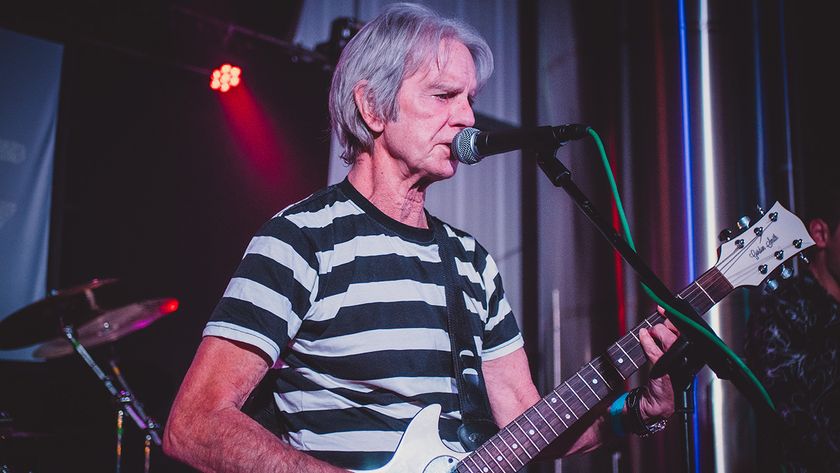
“I get asked, ‘What’s it like being a one-hit wonder?’ I say, ‘It’s better than being a no-hit wonder!’” The Vapors’ hit Turning Japanese was born at 4AM, but came to life when two guitarists were stuck into the same booth
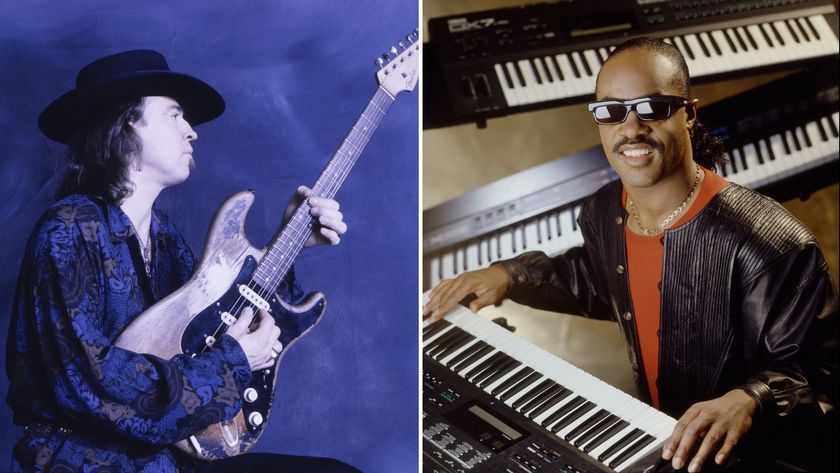
“Let's play... you start it off now, Stevie”: That time Stevie Wonder jammed with Stevie Ray Vaughan... and played SRV's number one Strat
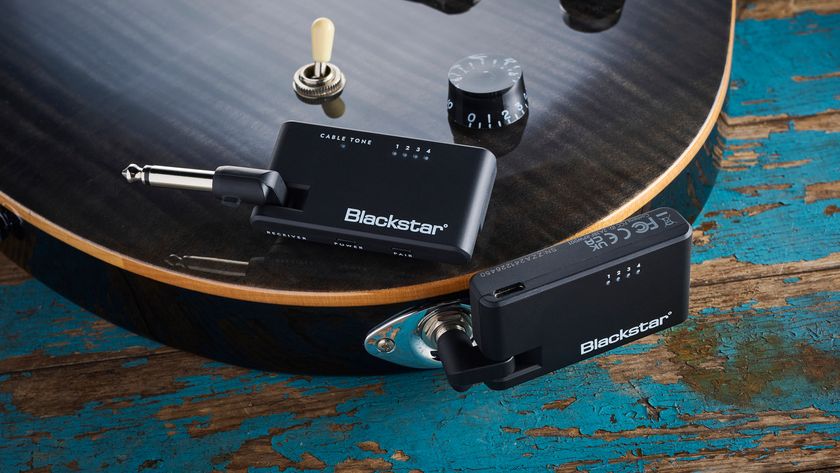
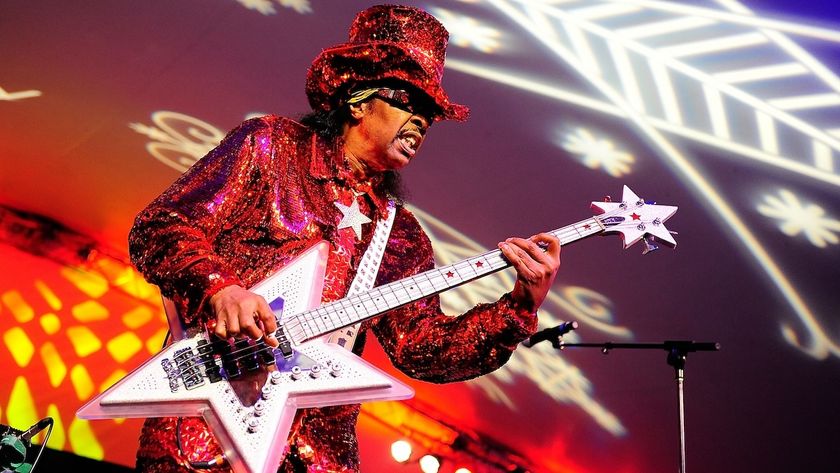
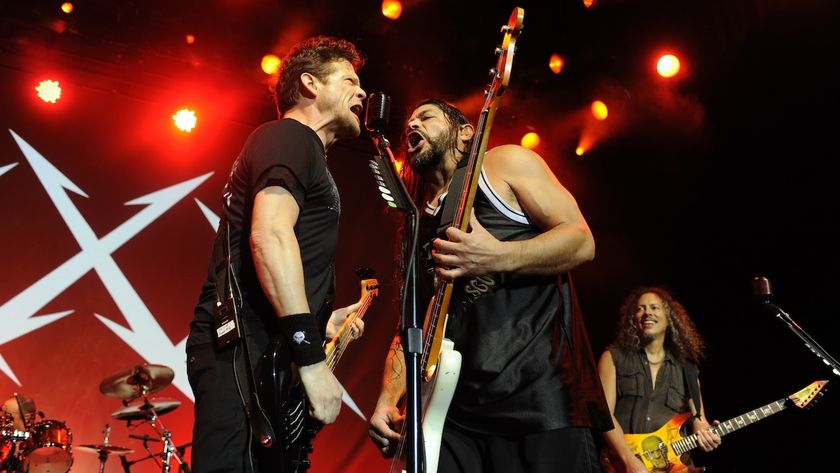
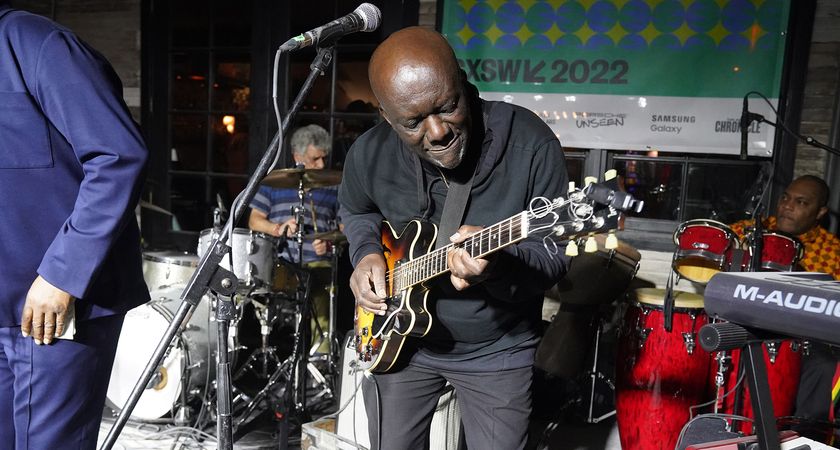
![[L-R] George Harrison, Aashish Khan and John Barham collaborate in the studio](https://cdn.mos.cms.futurecdn.net/VANJajEM56nLiJATg4P5Po-840-80.jpg)
